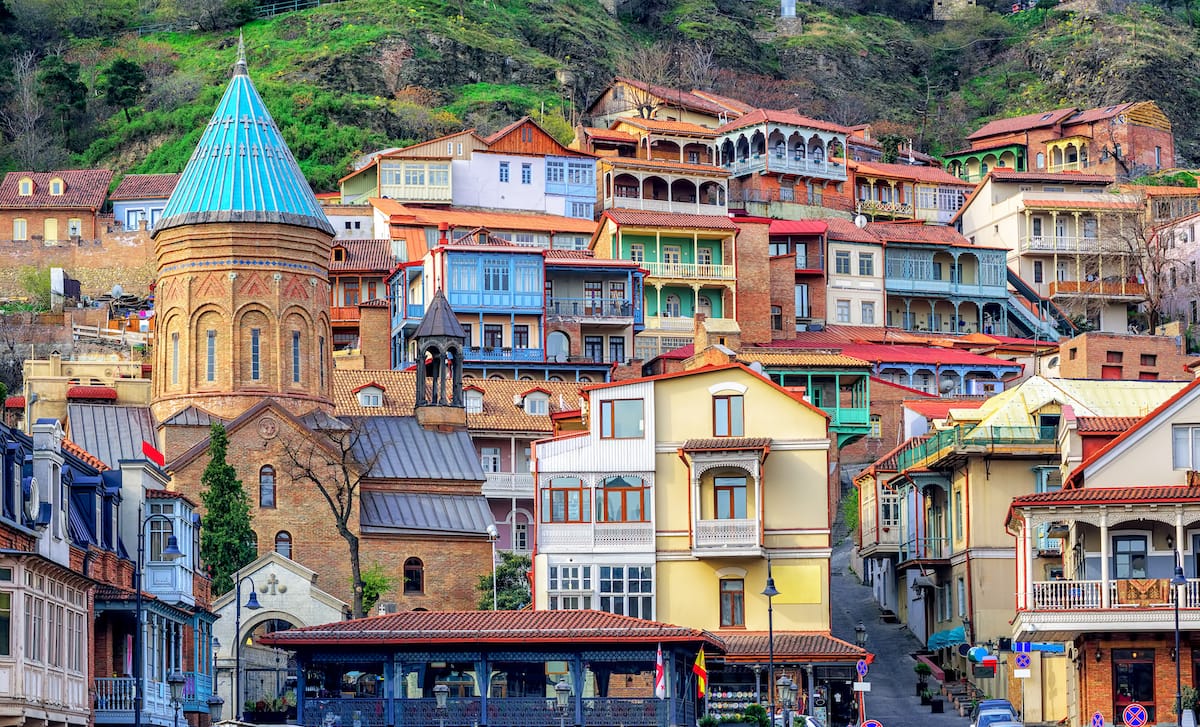Tbilisi is the capital and largest city of Georgia, a country located in the Caucasus region of Eurasia.
-
History: Tbilisi has a rich history that dates back to at least the 5th century AD. It has been influenced by various empires and civilizations, including the Persians, Arabs, Mongols, Ottomans, and Russians.
-
Location: Tbilisi is situated on the banks of the Mtkvari (Kura) River and is nestled between the picturesque Trialeti and the Greater Caucasus mountain ranges. It lies at the crossroads of Eastern Europe and Western Asia.
-
Architecture: The city is known for its diverse architectural styles, reflecting the influences of different periods. It features a mix of medieval, Neoclassical, Art Nouveau, Soviet-era, and contemporary architecture. The Old Town, with its narrow winding streets, is particularly charming and has been designated as a UNESCO World Heritage Site.
-
Landmarks: Some notable landmarks in Tbilisi include the Narikala Fortress, a medieval fortress overlooking the city; the Holy Trinity Cathedral of Tbilisi, also known as Sameba, one of the largest Eastern Orthodox cathedrals in the world; the Bridge of Peace, a modern pedestrian bridge adorned with a distinctive glass and steel design; and the Anchiskhati Basilica, one of the oldest churches in Tbilisi.
-
Cultural Hub: Tbilisi is a vibrant cultural center with a thriving arts and music scene. The city hosts numerous festivals throughout the year, including the Tbilisi International Film Festival and Tbilisi Jazz Festival. It is also home to several museums, galleries, theaters, and concert halls.
-
Sulphur Baths: Tbilisi is famous for its historic sulphur baths, which have been used for relaxation and healing for centuries. These bathhouses are an integral part of the city's cultural heritage and attract both locals and tourists.
-
Cuisine: Georgian cuisine is highly regarded worldwide, and Tbilisi offers a fantastic culinary experience. Traditional dishes such as khachapuri (cheese-filled bread) and khinkali (dumplings) are must-try specialties. The city is also known for its vibrant café culture, with numerous charming cafés and restaurants serving both local and international cuisine.
-
Wine Culture: Georgia has an ancient winemaking tradition, and Tbilisi serves as an excellent base for exploring Georgia's wine regions. The city has wine bars and shops where visitors can sample and purchase a wide variety of Georgian wines.
-
Warm Hospitality: Georgians are known for their warm hospitality, and Tbilisi is no exception. Visitors often appreciate the friendly and welcoming nature of the locals, which adds to the city's charm.
Tbilisi offers a unique blend of history, culture, architecture, and natural beauty, making it an intriguing destination for travelers seeking an enriching experience.



